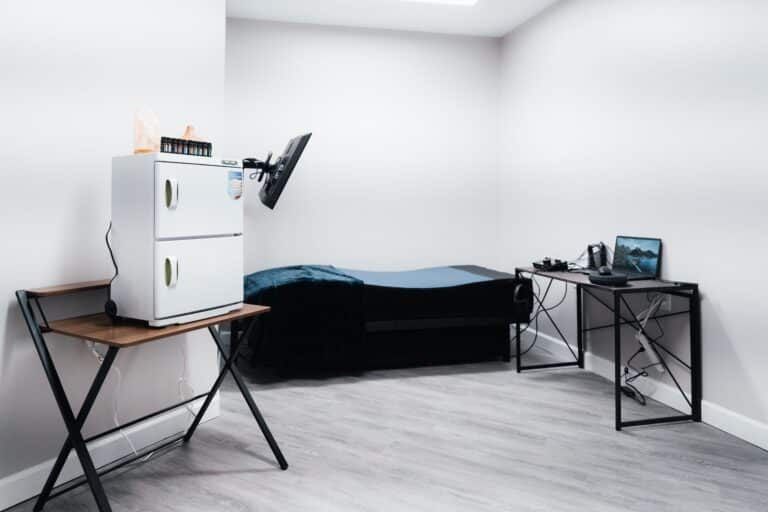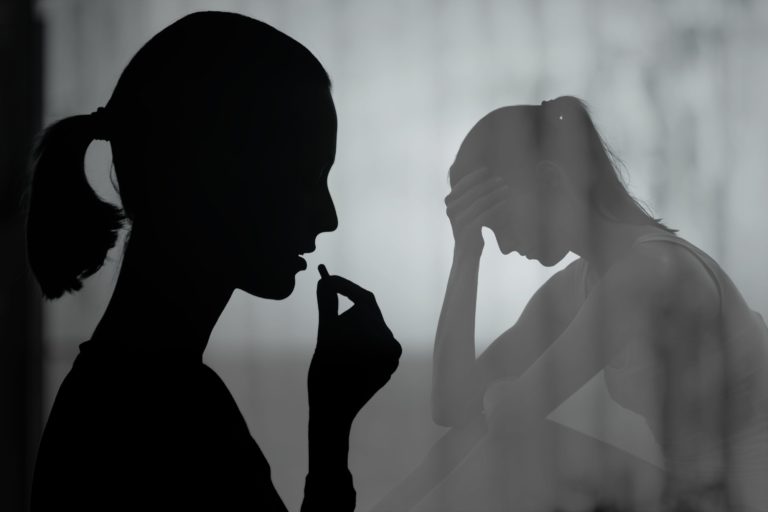The effects of taking antidepressants when not depressed can be potentially harmful and lead to various physical and psychological complications.
While antidepressant medications are designed to help those with clinical depression, using them without a proper diagnosis can disrupt normal brain chemistry and cause unwanted side effects.
At Arbor Wellness, our experts explain what happens when you take these medications recreationally or without a proper diagnosis.
The Effects of Taking Antidepressants When Not Depressed
The effects of taking antidepressants when not depressed can be significant and potentially harmful.
When someone without depression takes these medications, they’re disrupting a neurochemical balance that wasn’t impaired to begin with, which can lead to various adverse outcomes:
Changes in Brain Volume
Studies suggest that taking antidepressants without having depression can reduce the volume of two important brain regions:
- The anterior cingulate cortex, which controls and regulates mood
- The hippocampus, where the registration and consolidation of memory takes place
Serotonin Syndrome
This potentially life-threatening condition occurs due to excessive serotonin accumulation in the brain.
Because most antidepressants boost serotonin levels, taking them unnecessarily can lead to serotonin syndrome, with symptoms appearing within 24 hours:
Initial symptoms include:
- Agitation
- Confusion
- Rapid heart rate
- Dilated pupils
- Muscle rigidity
More severe cases can cause:
- Seizures
- Irregular heartbeat
- Unconsciousness
Prompt medical attention is crucial as severe serotonin syndrome can be fatal if not treated promptly.
Emotional Blunting
People without depression who take antidepressants commonly report feeling emotionally “flat” or “numb.” This happens because the medications alter normal neurotransmitter function:
- Reduced ability to feel both positive and negative emotions
- Decreased emotional reactivity to normally joyful events
- Feeling detached or disconnected from experiences
Risk of Dependency and Withdrawal
While antidepressants are not considered addictive in the traditional sense, the body can become dependent on them. This means that stopping them abruptly can lead to withdrawal symptoms, including:
- Dizziness
- Nausea
- Electric shock-like sensations (“brain zaps”)
- Anxiety
- Irritability
- Flu-like symptoms
For this reason, antidepressants should always be tapered under medical supervision rather than stopped suddenly.
Understanding Antidepressants And How They Work
Antidepressants are medications prescribed to treat depressive disorders by altering brain chemistry to improve mood and alleviate symptoms of depression, seasonal-affective disorder (SAD), and dysthymia. These medications work by modifying neurotransmitter levels in the brain to enhance mood stability and emotional well-being.
Most antidepressants work by influencing how the central nervous system produces, transmits, and reabsorbs chemicals known as neurotransmitters. The exact mechanisms vary depending on the type of antidepressant.
Common Types of Antidepressants:
- Selective Serotonin Reuptake Inhibitors (SSRIs)
- Serotonin and Norepinephrine Reuptake Inhibitors (SNRIs)
- Examples include Effexor, Pristiq, and Cymbalta
- Affect both serotonin and norepinephrine
- Norepinephrine and Dopamine Reuptake Inhibitors (NDRIs)
- Currently, the primary medication in this category is Wellbutrin
- Targets dopamine and norepinephrine
These medications affect neurotransmitters associated with mood, motivation, sleep cycles, pleasure, and the body’s stress responses. By preventing neurons from reabsorbing these neurotransmitters, the medications increase their levels in a person’s system, which can help alleviate depression symptoms.
What Do Antidepressants Feel Like?
Understanding what antidepressants feel like can help clarify why taking them without a clinical need for depression treatment can be problematic.
For People With Depression
For those with clinical depression, antidepressants typically provide:
- Gradual improvement: Effects build slowly over 2-6 weeks, not immediately
- Return to baseline: Many describe it as “feeling like myself again” rather than feeling artificially happy
- Reduced negative thoughts: The persistent dark thoughts and hopelessness diminish
- Energy restoration: Activities that seemed impossible become manageable again
- Emotional regulation: Ability to feel appropriate emotions returns, rather than constant sadness or numbness
As one patient described it: “It doesn’t make you happy. It makes you able to be happy when there’s something to be happy about, sad when there’s something to be sad about. Before, I was just sad all the time regardless of what was happening.”
For People Without Depression
When someone without depression takes antidepressants, the experience is typically quite different:
- Emotional blunting: Many report feeling “flat” or experiencing a reduced range of emotions
- Unnecessary side effects: Physical symptoms like nausea, headaches, or sexual dysfunction without any therapeutic benefit
- Anxiety or restlessness: Particularly with certain SSRIs, some people experience increased anxiety or jitteriness
- Sleep disruption: Changes to sleep architecture without improving an existing sleep problem
- No euphoria: Unlike recreational drugs, antidepressants don’t produce a “high” or pleasurable sensation
This stark difference explains why antidepressants have limited appeal for recreational use – they simply don’t produce enjoyable effects for people who don’t have depression. Instead, they can disrupt natural emotional responses and neurochemical balance.
The experience of taking antidepressants when not depressed is often described as “dulling” rather than enhancing, which is why their misuse is typically related to misguided self-medication rather than seeking pleasurable effects.
At Arbor Wellness, if you or a love one are struggling with a substance use disorder to antidepressants, we can help. Our detox and residential treatment programs can assist you in navigating mental health disorders and substance use disorder simultaneously.
About Antidepressant Abuse & Addiction
As with most prescription medications, antidepressants can be misused for two primary reasons:
- Self-medication – Taking unprescribed medications to treat undiagnosed mental health conditions
- Attempting to achieve recreational effects – Though antidepressants rarely produce euphoric effects
Many people mistakenly believe that prescription medications are inherently safer than other substances because they’re prescribed by doctors.
While antidepressants can be safe when taken as directed by someone with clinical depression, they can cause harmful side effects when taken by someone who isn’t depressed or when taken at higher doses than recommended.
According to research published in the journal Substance Abuse and Rehabilitation, most individuals who misuse antidepressants also have a substance use disorder and a co-occurring mood disorder (dual diagnosis). The typical motivation for misuse is an attempt to experience a “psychostimulant-like effect,” though antidepressants rarely deliver this desired outcome.
When someone without depression takes antidepressants recreationally, they risk developing a psychological dependence on the medication, even though these drugs don’t typically produce the euphoric effects that encourage traditional addiction patterns.
Treatment Options for Antidepressant Misuse
Even without permanent physical damage, individuals struggling with antidepressant misuse may benefit from professional care. Proper depression treatment helps overcome the urge to misuse these or other prescription medications.
Depending on the severity of the situation, treatment may include:
- Residential care: 24/7 support in a structured environment
- Partial hospitalization: Intensive daytime treatment with evenings at home
- Intensive outpatient programming: Several hours of treatment multiple days per week
Treatment typically includes various therapies to:
- Identify underlying causes of substance misuse
- Develop healthy coping mechanisms
- Address co-occurring mental health conditions
Additional Beneficial Services Include:
- Psychiatric care
- Alpha-Stim treatment
- Biosound therapy
- Red light therapy
- Genetic testing
- Holistic therapy approaches
For those misusing antidepressants as self-medication for anxiety, depression, PTSD, or other mental health concerns, finding a treatment provider offering dual diagnosis services is crucial. Dual diagnosis treatment addresses both substance use disorders and co-occurring mental health conditions simultaneously, providing comprehensive care.
Find Mental Health Treatment Today in Nashville, TN
If you or someone you care about is taking antidepressants without a prescription, struggling with depression, prescription drug misuse, or other mental health concerns, the Arbor Wellness team is here to help.
Our treatment center in Nashville, Tennessee, offers personalized services and comprehensive support within a safe and welcoming environment. Our dedicated professionals can help determine whether antidepressants are appropriate for your situation and provide proper medical supervision to ensure these medications are used safely and effectively.
Don’t risk the effects of taking antidepressants when not depressed. Get a proper evaluation and treatment plan tailored to your specific needs. Give us a call at 629-217-2658 or verify your insurance to learn more about our programs and how we can support your journey to wellness.



















Pingback: Do SSRI drugs help with COVID? - Desert Life